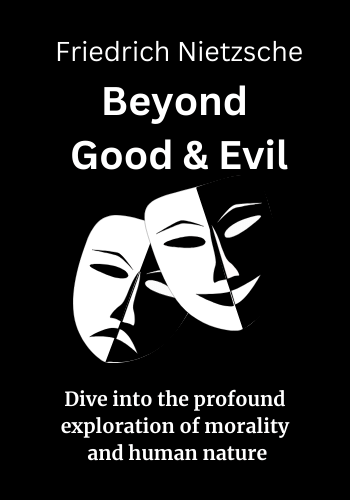
Beyond Good and Evil
Friedrich Nietzsche
10 Key ideas
29 MINS
4.6 (2.4k)
Can you see the role of religion as both a tool of control and a key factor in shaping societies?
Do you agree with Nietzsche's assertion that morality is not an innate human quality, but a product of social and political conditioning?
Can we resist the 'herd mentality' and strive for individuality and freedom in a society that values safety and conformity?
Dive into the complexities of the human mind, explore the illusion of free will, and challenge the pursuit of objective truth.
Can you see the role of religion as both a tool of control and a key factor in shaping societies?
Do you agree with Nietzsche's assertion that morality is not an innate human quality, but a product of social and political conditioning?
Can we resist the 'herd mentality' and strive for individuality and freedom in a society that values safety and conformity?
Dive into the complexities of the human mind, explore the illusion of free will, and challenge the pursuit of objective truth.


Can you see the role of religion as both a tool of control and a key factor in shaping societies?
Do you agree with Nietzsche's assertion that morality is not an innate human quality, but a product of social and political conditioning?
Can we resist the 'herd mentality' and strive for individuality and freedom in a society that values safety and conformity?
Dive into the complexities of the human mind, explore the illusion of free will, and challenge the pursuit of objective truth.
Key Ideas
Read | Listen - Full summary
About Author
Friedrich Nietzsche was a German philosopher, cultural critic, composer, poet, and philologist, widely acknowledged for his profound and often provocative ideas on morality, culture, and philosophy. He is the author of "Beyond Good and Evil," published in 1886, where he delves into the complexities of human values, critiquing the concept of morality as dictated by religious and philosophical traditions. In this work, Nietzsche challenges traditional moral concepts and asserts the importance of individual perspective and the "will to power." His ideas have had a significant impact on various realms of modern thought, including existentialism, postmodernism, and psychoanalysis.
Learn Key Ideas from 9000+
non-fiction books in 15min.



